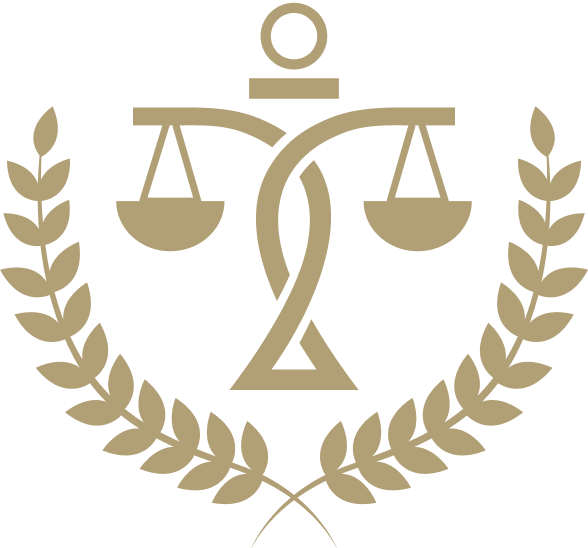
For many Virginia drivers, buying a used car is a smart financial move – until it isn’t. When that “great deal” turns into endless repairs, frustration sets in fast. At that point, most drivers start asking the same question: what is the lemon law in Virginia for used cars?
At James B. Feinman, Attorney at Law, we’ve worked with drivers across Virginia who find themselves in this exact situation – confused, misled, and unsure of what legal protections they actually have. As Virginia lemon law lawyers, we regularly help people figure out where they stand when a used car purchase doesn’t go as planned. Unfortunately, the answer isn’t always as simple as it should be. Virginia’s lemon law is strong, but its protections don’t automatically apply to every vehicle or situation.
In this guide, we’ll break down when the law does apply, when it doesn’t, and what you can do next if you feel stuck with a defective used car.
What Is the Lemon Law in Virginia?
Virginia’s lemon law – also known as the Motor Vehicle Warranty Enforcement Act – was created to protect consumers who purchase or lease new vehicles that turn out to have serious, recurring defects. The law gives buyers a right to a refund or replacement if the car cannot be repaired within a reasonable number of attempts.
To qualify under the law, the following conditions must generally be met:
- The defect must appear within 18 months of the vehicle’s original delivery date (not your purchase date if you bought it used)
- The defect must substantially affect the car’s use, value, or safety
- The vehicle must have been:
- Repaired for the same issue at least three times, or
- Out of service for a total of 30 days or more within a single calendar year
The law applies to new passenger cars, pickup trucks, SUVs, motorcycles, and motorhomes (though RV coverage is limited to the drivetrain and chassis). Leased vehicles may also be eligible if they were accompanied by a warranty.
Does Virginia Lemon Law Cover Used Cars?
Here’s the reality: Virginia’s lemon law does not automatically apply to used vehicles. That said, there are exceptions – and that’s where things get interesting.
You may still have a valid lemon law claim if:
- The car is still under the original manufacturer’s warranty, and
- The warranty has not been in effect for more than 18 months from its original start date.
So, what is the lemon law in Virginia for used cars? In short: used vehicles are only covered if they still meet the new car criteria.
If your used car is no longer under warranty or is beyond the 18-month limit, you may not be protected under state lemon law – but you may still have rights under federal warranty laws or common law fraud protections, especially if the dealer failed to disclose known issues.
What If the Dealer Promised It Was in Great Shape?
One of the most frustrating situations occurs when a buyer is verbally assured that a car is reliable, only to discover hidden issues later. While this might not fall under lemon law, it could raise legal concerns around:
- Misrepresentation or concealment of known defects
- “As-is” sale violations (in some cases, depending on how the contract was written)
- Breach of warranty, especially if a limited warranty was promised or advertised
If you're unsure whether you were misled, it’s worth speaking with a Virginia lemon law lawyer who can evaluate the documents and history behind the sale.
Does Virginia Have a 30-Day Lemon Law for Used Cars?
A car that is out of service for 30 days or more within a 12-month period can satisfy one of Virginia’s lemon law criteria—but only if the vehicle otherwise meets the new-car requirements (defect appearing within 18 months of delivery, repeat repair attempts, etc.).
In other words, extended downtime counts toward a lemon law claim, but there is no automatic refund simply because a vehicle breaks down for 30 days—those days must be part of a qualifying defect under the statute.
If your used car broke down soon after purchase and has been in the shop for an extended period, it may still be time to explore your legal options.
What Should You Do If Your Used Car Might Be a Lemon?
If your recently purchased used car is causing you problems, follow these steps:
Check the Warranty Status
Find out if the original manufacturer’s warranty is still active. This is key to determining whether Virginia lemon law may apply.
Gather Documentation
Keep every repair invoice, dealership receipt, and written warranty promise. These documents can make or break your case.
Track Repair Attempts and Downtime
If the same issue keeps coming back – or your car has been in the shop for weeks – write it all down. That timeline matters.
Talk to a Virginia Lemon Law Lawyer
Whether or not lemon law technically applies, an attorney can assess your situation and explore all possible legal angles.
Why Talk to a Lawyer?
Because every case is different – and the rules around used cars can be complex – it’s best to get professional guidance early. At James B. Feinman, Attorney at Law, I help people throughout Virginia understand their legal rights after a vehicle purchase has gone wrong.
And even if your car doesn’t meet every lemon law requirement, a lawyer can still evaluate your situation and explain whether other legal options may apply – especially if the dealership cut corners or failed to disclose major problems.
FAQ: Virginia Lemon Law for Used Cars
1. What is the lemon law in Virginia for used cars?
Used cars are not automatically covered, but they may qualify if they’re still under the manufacturer’s original warranty and meet all the lemon law criteria for new vehicles.
2. Does Virginia have a 30-day lemon law?
No. The 30-day rule refers to a car being out of service for that amount of time due to repairs – not a return or refund period. And it only applies to vehicles that otherwise meet lemon law conditions.
3. What if the car was sold “as-is”?
“As-is” sales reduce your rights, but not always completely. You may still have a claim for fraud or breach of warranty if something was misrepresented.
Call James B. Feinman, Attorney at Law Today — Your Virginia Lemon Law Lawyer
We know how overwhelming this process can be, and our team is here to help you understand your rights with clarity and confidence.
If you recently bought a used car that’s been nothing but trouble, don’t assume you’re stuck. You may still have legal options – even if lemon law doesn’t fully apply.
At James B. Feinman, Attorney at Law, I represent vehicle buyers across Lynchburg, Concord, Norfolk, and throughout the state. I’ll review your situation, explain your rights clearly, and help you take the next steps with confidence. Call 434-216-0166 or fill out our online contact form for a free case evaluation.
Disclaimer: This blog is provided for general informational purposes only and should not be taken as legal advice. Virginia Lemon Law issues can be complex and fact-specific. If you believe your vehicle may qualify or you’ve experienced repeated issues after purchase, we encourage you to contact our office to discuss your legal options.
